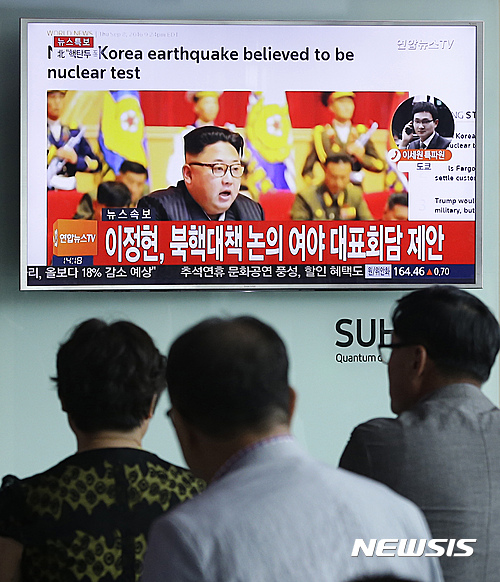
Rushing to North Korea’s aid

Donald Kirk – The Korea Times
North Korea is truly a schizophrenic state. All in a day we hear about the need for generous foreign donors to come to the rescue of thousands of victims of flooding in the hard-scrabble northeast where life is tough in the best of times. Then, in the next breath, the North Korean propaganda machine is pumping out reports of another weird and wonderful missile and the North’s capacity for raining death and destruction on targets from Washington to Seoul.
So what are we supposed to make of these conflicting images of life and death in a land with billions to spend on nukes and missiles but none left over for drowning and starving people? Stranger still, Pyongyang’s Korean Central News Agency puts out pictures of Supreme Leader Kim Jong-un grinning at a fruit farm and extolling the virtues of a missile but none of him visiting the scenes of the flooding. Is the Onsong district, up by the Tumen River border with China, a no-go zone where he’s afraid to show his fat face for fear of getting jeered at or worse by unhappy people?
It’s not hard to understand why Kim Jong-un is reluctant to visit the scenes of such suffering. It wasn’t long ago that Onsong harbored one of North Korea’s worst concentration camps, where 15,000 or so people were confined for whatever crimes they were forced to confess. The camp was closed and the prisoners transferred after a bloody revolt nearly 30 years ago that ended with hundreds dead. Without the camp, Onsong remains rife with starvation, crime and plotting by its people to escape across the Tumen River into China – and, if they can avoid Chinese soldiers and police, freedom by a circuitous route through Southeast Asia or Mongolia to South Korea.
Kim Jong-un is not the only North Korean leader who’s reluctant to visit Onsong. We don’t hear of anyone in authority on the scene. All we have are reports of soldiers and aid workers clearing out debris. We’re not even told of the scope of the disaster, of the area that was hardest hit or the exact nature of the damage. The impression is the region is tightly guarded to stop citizens from either rising up in civil revolt or fleeing en masse.
Maybe that’s why, while calling the flooding the worst in the region in modern Korean history, representatives of non-governmental organizations are not there either. North Korean authorities have forced a number of NGOs to leave the country in recent years, but you may be sure they’d all be willing to return if assured of operating independently, free of government constraints.
Nor do we hear of foreign news organizations visiting Onsong for more than a perfunctory look. The last thing North Korea needs is for foreign television crews stomping over flooded fields, sending back reports revealing how awful conditions really are. Nor, of course, do North Korean authorities want the world to see into the lives of inhabitants of a region that’s produced half of the 30,000 or so who’ve made it to South Korea as refugees or defectors, call them by either name.
Against all odds, however, diligent United Nations aid-givers seem to have a partial fix on what’s going on up there. I have before me a report from the U.N. office in Pyongyang stating the urgent need of “US$28.2 million to assist people affected by flooding” in the far northeast.
Plainly, the “Emergency Response Plan” released by the U.N. Humanitarian Country Team in DPRK “outlines the support U.N. agencies and international NGOs are aiming to provide 600,000 people in the six most affected counties” over the next six months. The plan “focuses on lifesaving activities in shelter, food and agriculture, health, nutrition, water, sanitation and hygiene and education in the aftermath of flooding that killed 138 people,” leaving 400 missing and 140,000 “in immediate need,” including 69,000 “forced to leave their homes.”
Bravo for the U.N. Even as Kim Jong-un threatens to smite his enemies with his burgeoning arsenal of fearsome weapons, U.N. people are striving to rush the aid that he is unable to drum up for a region he’s too frightened to visit. Sadly, however, we still have no idea where this foreign aid is going – probably the bulk of it to the soldiers and police detailed to control a restive populace, not to those most in need.
It’s quite possible, judging from the fragmentary news we do get, that the suffering is even worse than indicated by the U.N. figures, which had to have come from DPRK sources. Meanwhile, Kim Jong-un himself has nothing to say or offer in a time of tragedy. He would rather appear on camera chortling among fruit trees or bursting his outsized britches in pride over a new-fangled weapon.


